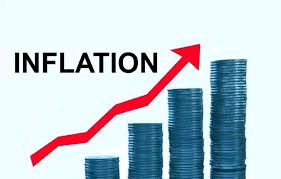*Nigeria* –
The latest inflation data released by the National Bureau of Statistics (NBS) has raised concerns about the worsening economic conditions in Nigeria, with fears of increasing hunger and poverty among its citizens. According to the NBS Consumer Price Index for August 2023, the headline inflation rate surged to 25.8%, up from the previous month’s rate of 24.08%. This alarming increase in inflation poses significant hardships for Nigerians and calls for urgent action from the government and the Central Bank of Nigeria.
The rising cost of living is taking a toll on Nigerian households, particularly with food inflation reaching 29.34% on a year-on-year basis in August 2023, a sharp increase of 6.22% compared to the 23.12% rate in August 2022. The NBS attributed this rise to increases in the prices of essential items such as oil, fat, bread, cereals, fish, fruit, meat, vegetables, potatoes, yam, and other tubers, as well as dairy products. On a month-on-month basis, food inflation in August 2023 was 3.87%, 0.41% higher than the rate recorded in July 2023.
Nigeria’s economic challenges are further compounded by insecurity, which has disrupted farming activities, leading to food shortages and job losses. Unemployment rates have soared, with figures reaching 33.3% overall and a staggering 53.4% among the youth. Additionally, high energy costs, a volatile foreign exchange market, and high borrowing rates have all contributed to rising consumer prices. Nigeria’s heavy reliance on imports for most goods and services, including food, exacerbates the inflationary pressures.
In an attempt to address these issues, the Nigerian government implemented changes such as ending petrol subsidies and unifying the naira exchange rates. However, these measures have led to significant increases in petrol prices and a steep depreciation of the naira, with exchange rates exceeding N1,000 to $1 in recent times.
President Bola Tinubu and his administration must tackle the structural and security challenges driving food and basic service prices beyond the reach of many Nigerians. Successive Nigerian governments have struggled to manage inflation effectively, leading to underinvestment in the agricultural sector and pushing more people into poverty and hunger.
To combat these challenges, the government should prioritize resolving the power supply issues, as the current insufficient supply of less than 4,000 megawatts from the national grid hampers productive activities. Addressing insecurity is also crucial to encourage food production, and states and local governments should invest in rural infrastructure, agricultural extension services, and power.
A coordinated national emergency program involving the central government, states, and local governments should focus on power supply, agriculture, and security to stimulate small and medium-sized enterprises (SMEs), job creation, and increased food production. Nigeria’s inflationary trend must be addressed comprehensively, considering its structural deficiencies, corruption, insecurity, and weak institutions.










